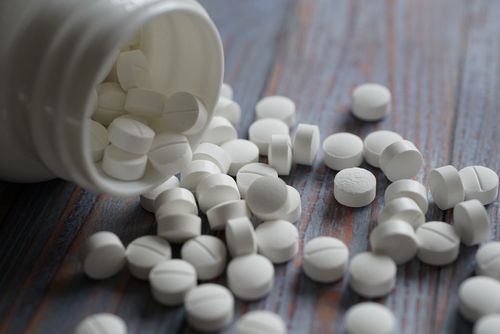steroidsbuy
How to Increase the Effectiveness of Steroid Treatment Through Proper Dosing
Steroid therapy has become a cornerstone in the management of various medical conditions, including inflammatory diseases, autoimmune disorders, and certain hormonal imbalances. While steroids can offer rapid relief and significant therapeutic benefits, their effectiveness largely depends on an appropriate dosing regimen. Administering steroids correctly not only enhances their therapeutic impact but also minimizes adverse effects and reduces the risk of tolerance or dependence.
Understanding Steroid Dosing Fundamentals
Before delving into strategies to optimize steroid efficacy, it’s essential to understand the basic principles of steroid dosing:
- Individualized Dosing: Tailoring the dose based on the patient’s specific condition, severity, body weight, age, and comorbidities.
- Timing and Frequency: Timing doses to align with the body’s natural circadian rhythms can improve outcomes, especially in hormonal therapies.
- Route of Administration: Oral, intravenous, intramuscular, topical, or inhaled routes influence absorption rates and systemic effects.
- Duration of Therapy: Using the lowest effective dose for the shortest necessary period helps prevent side effects.
Strategies to Enhance Steroid Effectiveness through Proper Dosing
1. Initiate with an Optimal Dose
Starting with an appropriately high enough dose—often called a loading dose—can quickly control inflammation or symptoms. However, this must be balanced against the risk of side effects. Once control is achieved, tapering to the minimum effective dose maintains therapeutic benefits while reducing adverse events.
2. Use Tapering Protocols Judiciously
Gradually decreasing steroid doses prevents withdrawal symptoms and allows the body’s hypothalamic-pituitary-adrenal (HPA) axis to recover. Tapering schedules should be individualized based on the duration and dosage of initial therapy, as well as patient response.
3. Adopt the Correct Timing and Dosing Schedule
Align dosing with the body’s natural cortisol rhythm—typically administering higher doses in the early morning and lower doses in the evening—can enhance effectiveness and reduce side effects such as sleep disturbances.
4. Monitor Patient Response and Adjust Accordingly
Regular assessment of clinical signs, laboratory markers, and patient feedback guides dose adjustments. If symptoms persist or worsen, dosing may need to be increased temporarily, whereas improvements warrant cautious tapering.
5. Combine Steroids with Other Therapies When Appropriate
Using steroids alongside other medications or non-pharmacological interventions can allow for lower steroid doses while still achieving desired outcomes, thus reducing potential toxicity.
Special Considerations for Different Types of Steroids
Different steroids have varying potencies, half-lives, and mineralocorticoid activities. Recognizing these differences is critical for proper dosing:

- Prednisone: Commonly used in inflammatory conditions; dose varies widely based on severity.
- Dexamethasone: Long-acting, potent steroid suitable for CNS conditions or diagnostic testing.
- Hydrocortisone: Mimics natural cortisol; often used in adrenal insufficiency.
Choosing the correct steroid and dose for each application maximizes benefits and minimizes risks.
Potential Risks of Improper Dosing and How to Avoid Them
Incorrect dosing can lead to:
- Under-treatment: Persistent disease activity, progression of illness, or failure to achieve desired outcomes.
- Over-treatment: Increased risk of osteoporosis, hyperglycemia, immunosuppression, and other side effects.
To mitigate these risks, adherence to evidence-based dosing guidelines and close monitoring are essential.
The Role of Healthcare Professionals
Proper dosing requires expertise, as factors like drug interactions, comorbidities, and individual patient responses influence optimal regimens. Regular consultations ensure adjustments are timely and appropriate.
To increase the effectiveness of steroid treatment through proper dosing, it is crucial to consult with a healthcare professional for personalized guidance. Visit steroidsbuy-online.com for more information on the correct dosing of steroids and how it can optimize the treatment outcomes.
Conclusion
Effective steroid therapy hinges on precise dosing tailored to each patient’s unique needs. By understanding pharmacokinetics, timing, route of administration, and monitoring, healthcare providers can significantly enhance therapeutic outcomes. Proper dosing not only maximizes benefits but also safeguards against adverse effects, fostering safer and more effective long-term management of various health conditions.
- Лучшие Онлайн Казино С Paysafecard Для Безопасных Игр
- Как выбрать надежное казино с СМС оплатой для ставок
- Лучшие онлайн казино Казахстана для больших выигрышей 2025
- Лучшие онлайн казино для честной игры без обмана 2025
- Лучшие клубы для высоких ставок в виртуальных казино 2025
- Super Joker KOSTENLOS spielen, NetEnt Gratis Demo
- Fre spins non deposit computerprogramma Nederlan
- Beste Fuga Gaming Slots unter anderem Casinos million dollar man 120 freie Spins pro 2024 « jmjipok
- Topp 8 hans förklaring ultimat Swish casinon!
- Gonzos Trip Games Review 2025 RTP, Bonuses, Demonstration
